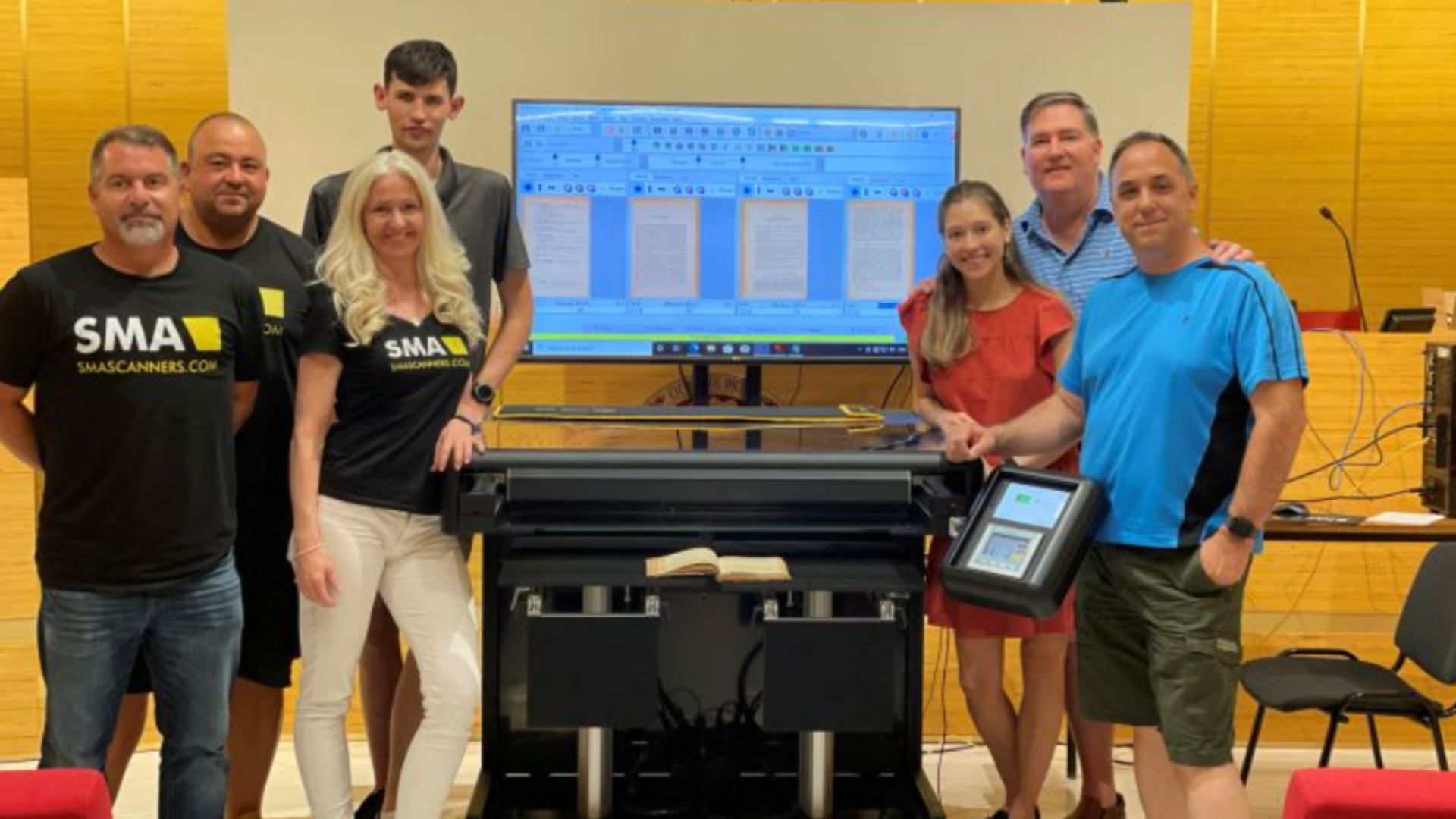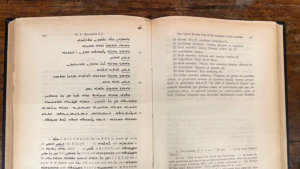
Back to the future: LIers scan Vatican texts for blockchain publication
This article was written by Ken Schachter[email protected] @kschach Updated September 22, 2021
Centuries-old Christian scholarship is meeting cryptocurrency technology in an unlikely pairing abetted by a Long Island company. Text-scanning company Seery Systems Group Inc. has been shuttling staffers to a Vatican university in Rome as part of a project to bring to light texts dating as far back as the 1400s. The Rev. Pater David E. Nazar, rector of the Pontificio Istituto Orientale in Rome, said his school’s 250,000 volume library is “unique in the world.” The PIO, created by Pope Benedict XV in 1917, is a graduate school focused on the study of the Eastern Orthodox and other “Oriental” churches, which stretch from Russia to Baghdad to Ethiopia to India.

A page from a book scanned by SMA Scanners and Seery Systems that shows the oldest version of the mass of the Apostles. Credit: SMA Scanners/Peggy Zilian
The volumes, including about 500 original manuscripts, shed light on the history, politics and religious practices of those societies to scholars around the world. Some books have calligraphy done by monks. A single page might include multiple languages such as English, German, Italian, Hebrew and Greek, Nazar said. “Baghdad was a huge intellectual center,” he said. “They came up with a political theory that said the religious head should not be the head of state. That was in the 12th century!” One page, written in ancient Syriac, a form of Aramaic, shows the oldest version of the mass of the Apostles.
Nazar said that researchers come to the Jesuit-run school to find resources that no longer exist in their home countries. “When scholars come, they can’t believe what’s in our library,” he said.
Nazar, originally from Toronto, said he brings a can-do “North American mentality” to his job. Recognizing that the documents have a limited circulation while they remain within the PIO’s walls, he began looking for benefactors about six years ago. He found a group called Humanity 2.0, a Vatican-aligned non-profit that seeks to coordinate initiatives between public, private and faith-based groups. That led him to Manhattan-based ShelterZoom Corp., a document management company that in February signed a partnership agreement with Humanity 2.0.
Chao Cheng-Shorland, co-founder and chief executive of ShelterZoom, said that she met Nazar during a visit to the Vatican that month. They began hatching a plan to digitize about 500 of the most important texts in the collection at a time when access was limited by the COVID-19 pandemic. “It’s going to be a game changer,” she said. Nazar said blockchain technology will be used to limit downloading without permission and allow the PIO to charge a fee to use the materials. “If we can control access, we can charge,” he said. ShelterZoom’s DocuWalk product merges blockchain technology with document management.
A blockchain is the database developed to secure cryptocurrency transactions, but it also can be adapted to record and guard other transactions. To scan the books into the system, ShelterZoom turned to its business partner, Garden City Park-based Seery Systems. The Vatican also is digitizing its vast library, but it is not using blockchain technology, Nazar said.
Other religions also are exploring technology associated with cryptocurrency.
A Brooklyn Jewish group, Tech Tribe, is offering non-fungible tokens depicting Torah readings in exchange for donations to finance the writing of a traditional Torah scroll.
NFTs are digital assets, often representing artwork or collectibles, with unique identification codes that cannot be duplicated.
Seery Systems’ business typically is much closer to home. The company works with Nassau County, the towns of Hempstead, Oyster Bay and East Hampton and other municipalities to digitize their paper records.
“We scan approximately seven million images per year,” said president Richard J. Seery. The PIO project, managed by Seery’s 24-year-old daughter, Mary Seery, is far afield for the Long Island company. “I used to say I don’t even go to New Jersey for business and now my six staff and I have been rotating in and out and flying back and forth to Rome,” he said. Seery Systems and ShelterZoom are digitizing the first 500 texts as a pro bono project, but once scholars are accessing the books on the blockchain around March, they hope to share in the revenue stream.

